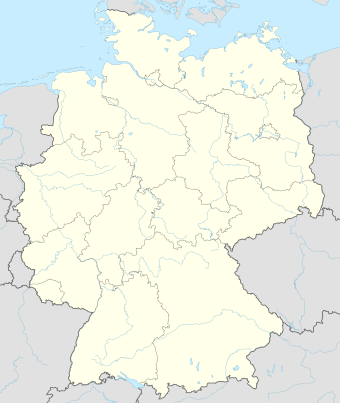
Back Exzellenzinitiative ALS مبادرة الامتياز للجامعات الألمانية Arabic জার্মান বিশ্ববিদ্যালয় উৎকর্ষ উদ্যোগ Bengali/Bangla Exzellenzinitiative German Initiative d'excellence allemande French エクセレンス・イニシアティブ Japanese 우수대학육성정책 Korean Inicjatywa Doskonałości Polish Excellensinitiativet för tyska lärosäten Swedish 德國卓越大學計劃 Chinese
This article needs to be updated. (December 2020) |
The Excellence Initiative of the German Council of Science and Humanities and the German Research Foundation (DFG) aims to promote cutting-edge research and to create outstanding conditions for young scholars at universities, to deepen cooperation between disciplines and institutions, to strengthen international cooperation of research, and to enhance the international appeal of excellent German universities. It is the result of lengthy negotiations between the federal government and the German states.[1]
Since almost all German universities are public (most private universities do not have the official German "Universitätsstatus"), and therefore mainly paid by taxes and generally egalitarian, there is no German Ivy League of private higher education institutions. However, the Excellence Initiative aims to strengthen some selected public universities more than others in order to raise their international visibility. Thus, the German "Universities of Excellence" are sometimes considered the German Ivy League of public institutions, and these universities are commonly referred to by the media as "elite universities".[2][3][4] The initiative is conducted by the DFG together with the German Science and Humanities Council (WR). More than 30 universities in total received funding. It includes three lines of funding:
- The establishment of more than 40 research schools for young scientists and PhD candidates, which will receive €1 million each per year.
- The creation of thirty so-called Clusters of Excellence, that connect universities with leading German research institutes and businesses. Annually, these clusters will receive around €6.5 million each to fund their work.
- The selection of 11 Universities of Excellence, which will be funded highly for their "future concepts", i.e., institutional strategies to promote top-level university research.[1] Particularly this third line of funding has drawn appreciable international attention, both in academia and media.[2]
Altogether €2.7 billion (€1.9 billion for 2007–2012) of additional funds will be distributed over the coming five years, most of this coming from the federal government. The WR is responsible for the third line of funding, and the DFG is responsible for the first and second lines of funding.
- ^ a b "German Science Council: The Excellence Initiative". Archived from the original on 20 February 2010. Retrieved 27 February 2008.
- ^ a b "A German Ivy League Takes Shape". SCIENCE / AAAS. 13 October 2006. Retrieved 16 May 2008.
- ^ Leffers, Jochen (19 October 2007). "Elite-Unis: Jubel in den Südstaaten". Spiegel Online. Retrieved 16 May 2008.
- ^ Vogel, G. (2006). "HIGHER EDUCATION: A German Ivy League Takes Shape". Science. 314 (5798): 400. doi:10.1126/science.314.5798.400. PMID 17053117. S2CID 153671746.
© MMXXIII Rich X Search. We shall prevail. All rights reserved. Rich X Search
